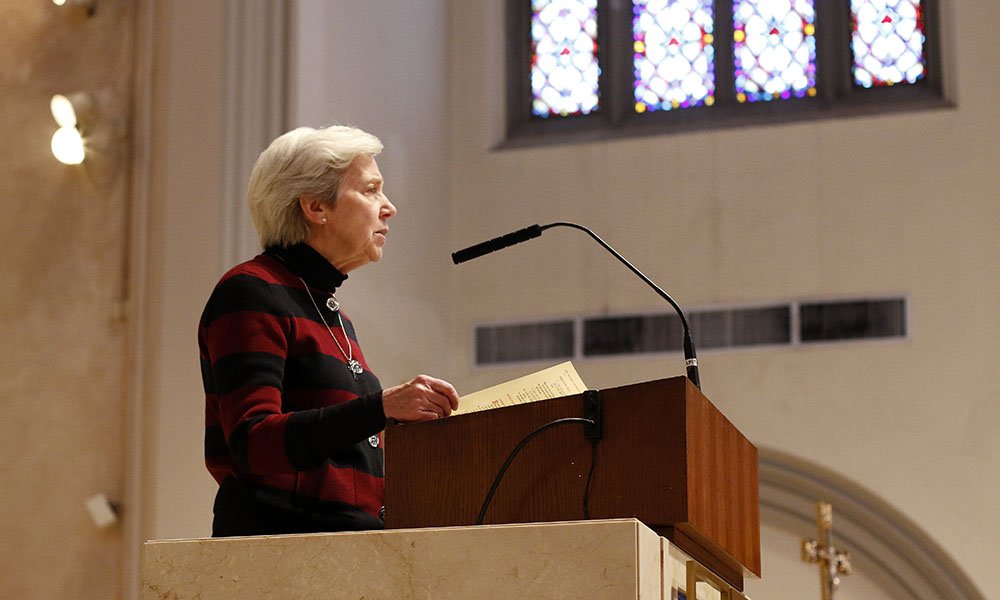From the days of the early Church it has been common practice to offer Mass for the dead, as well as for others. Archaeologists have discovered epitaphs on tombs in the Roman catacombs, asking for prayers for the departed one. Numerous early Church Fathers witness to this practice. Recall from St. Augustine’s “Confessions” St. Monica’s one dying request, “that you remember me at the altar of the Lord wherever you may be.” Countless Christians have made this same request of their survivors.
In his encyclical Mirae caritatis (1902), Pope Leo XIII situated the offering of Mass for others in the true context of our concern for others, the Communion of Saints. “For faith teaches us, that although the venerable Sacrifice may be lawfully offered to God alone, yet it may be celebrated in honor of the saints reigning in heaven with God who has crowned them in order that we may gain for ourselves their patronage. And it may also be offered — in accordance with an apostolic tradition — for the purpose of expiating the sins of those of the brethren who, having died in the Lord, have not yet fully paid the penalty of their transgressions” (No. 12).
Father Ray Ryland, Ph.D., J.D., was an adjunct professor of theology at Franciscan University of Steubenville, Ohio.

